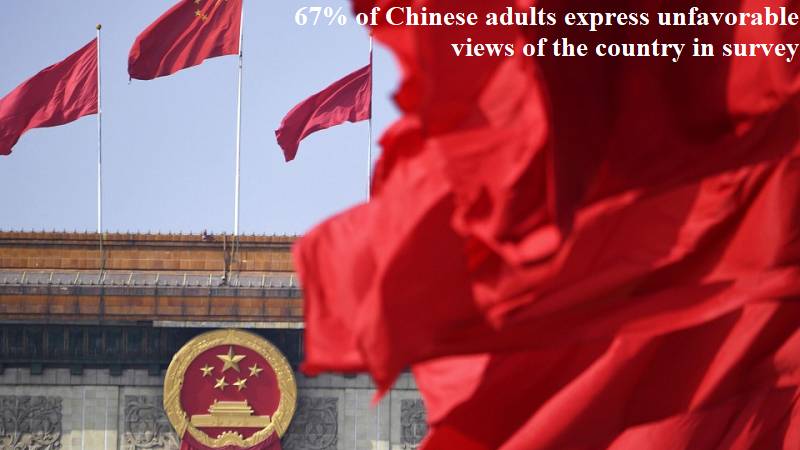
A recent survey conducted by the Pew Research Center across 24 countries reveals that China’s reputation has suffered globally, with 67 per cent of adults expressing unfavorable views of the country. In contrast, only 28 per cent of respondents hold positive opinions about China.
This negative sentiment is particularly strong in most high-income countries, reaching historic highs, according to Pew Research.
The survey, published last Thursday, gathered perspectives from over 27,000 adults between February 20 and May 22 of this year. Participants came from diverse countries, including advanced economies in North America, Western Europe, and the Asia Pacific, as well as middle economies in Latin America and Africa.
The survey focused on various issues related to China, including respondents’ confidence in Chinese leader Xi Jinping.
When it comes to China’s role in the global arena, a striking 71 per cent of respondents believe that Beijing does not contribute to global peace and stability. This finding contrasts with China’s attempts to portray itself as a “peacemaker” through its involvement in brokering the historic peace deal between Iran and Saudi Arabia and issuing a 12-point peace plan for the Ukraine war earlier this year. However, experts point out that China’s failure to resolve territorial disputes with certain countries contradicts its “peacemaker” image.
The survey also reveals that 76 per cent of respondents believe that China does not take other countries’ interests into account when formulating its foreign policy. Moreover, more than half of the respondents (57 per cent) think that China interferes significantly in other countries’ affairs. Notably, in Italy, where there have been discussions about leaving the Belt and Road Initiative, a striking 82 per cent of respondents believe that China will interfere in other countries’ affairs.
These findings shed light on the prevailing global sentiment towards China and its actions on the international stage, indicating a growing skepticism and concern among respondents across different regions.

Post Your Comments